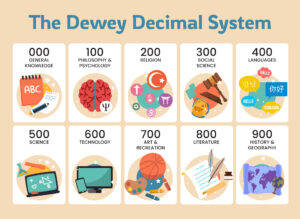As I complete one book’s birthing, thoughts have turned to what comes next on the writing front: I have many ideas. I sense there will always be many stories to tell along my life path as Buddhist-therapist-educator. Two ideas that I hope to come to fruition* are vying for my attention and affections. I am passionate about both which makes it difficult each Friday that I sit to write to focus on one without an idea from the other coming into contaminate and disrupt. Two notebooks on the go needless to say…
…and, needless to say, one of those projects is on the enneagram. More on this at a future date – including one very exciting iron in the fire which I hope to announce soon – but I hope to write a text on the enneagram that is very specific to using the system in psychotherapy. In all honesty, it is probably the hottest iron in the fire of writing projects BUT, I also know it will take time to gather the materials and the experiences that will give the book the vast view it wants and deserves. As I say, more to be revealed soon (ish).
And so the writing project that I am setting out on is one concerning the nature of counselling and psychotherapy: two words, the same or different activities? In the humanistic tradition in particular, there is much cultural context (one might say “baggage”) to consider in that question. One branch of our lineage comes from the US and the human potential movement of the 1950s and 60s. It was a culture epitomised by the work of Maslow and Rogers, and their deep belief that a person will self-actualise if provided the right conditions for growth. The humanistic tradition of therapy is thus firmly rooted in the activity of counselling – support, nurturance, “unconditional positive regard” and the like. If counselling is holding, psychotherapy might be considered more “pointy” – I am not making a value judgement on their relative merits, but more offering a felt sense of the relational encounter between therapist and client. I won’t go into detail here (especially as I don’t want to reveal a plot spoiler, nor influence the therapists I am interviewing for the research project that will lay foundations to the book!) but in my own experience of transitioning from counsellor to psychotherapist, I certainly took on a more challenging partner in the dyad. I know it is my job (or part of) to disrupt a system rather than collude with it.
 One anecdote from my “good, not great” summer is the project I took on to re-arrange my book collection. In full disclosure of my inner nerd**, I set about refining my home library system. “Library Thing” app downloaded, check; study of the Dewey system, check; and a long weekend ahead, I was all set to collate my books by category and apply white sticky labels for book spines so they could sit on their designated shelf. What a task! “But it will be worth it” I reminded myself, again and again. So why was it that after 4 days (yes, four days) that I looked at book shelves, task completed…and something felt FAR from complete? The system was flawed***. One week later, I took all the books down and went back to my original self-complied theme categorisation – the relief and fulfilment was visceral. I can only describe it like meeting my grief with the soothing it needed. And what WAS the grief? That books, seemingly on the same topic sat at opposite ends of my bookcases – they looked lost, estranged…and ripping up the system to start again was a gesture of reunion.
One anecdote from my “good, not great” summer is the project I took on to re-arrange my book collection. In full disclosure of my inner nerd**, I set about refining my home library system. “Library Thing” app downloaded, check; study of the Dewey system, check; and a long weekend ahead, I was all set to collate my books by category and apply white sticky labels for book spines so they could sit on their designated shelf. What a task! “But it will be worth it” I reminded myself, again and again. So why was it that after 4 days (yes, four days) that I looked at book shelves, task completed…and something felt FAR from complete? The system was flawed***. One week later, I took all the books down and went back to my original self-complied theme categorisation – the relief and fulfilment was visceral. I can only describe it like meeting my grief with the soothing it needed. And what WAS the grief? That books, seemingly on the same topic sat at opposite ends of my bookcases – they looked lost, estranged…and ripping up the system to start again was a gesture of reunion.

The reason for this digression is to underline something of those lineage roots of the humanistic tradition as we consider counselling vs / and psychotherapy. My books that carried “counselling” as their theme (I’m not sure who assigns the theme / category that leads to a Dewey number) are located in the 158.3 (ish) realm; whilst books with “psychotherapy” are situated some 450 ish numbers away in the far off land of 616.89. You can imagine my anguish….especially when you get a book on Gestalt counselling and psychotherapy, talk about split personality!! The reason this splitting occurs? It comes back to the origins, the culture and backdrop of “each” discipline: counselling is rooted in philosophy and psychology, whilst psychotherapy is considered more “technological” (along with medicine, psychiatry and clinical psychology). A fine example of social narrative, and the stories that are told / sold to us.
What is important to me as I continue to explore this area for the book is to gather the experiences of therapists who have, like me, transitioned from counsellor to psychotherapist. I want to hear their stories, to get there sense of how these two words resonant with them (as same, as different); and indeed, how the training they have completed has changed their practice (from one to the next), if indeed it has. I am halfway through interviewing volunteers for what will be a research project ahead of bringing ideas together for the book itself. I am really enjoying the discussions so far; especially as it is giving me a chance to re-connect with therapists whom I have contributed to the training of. I love hearing their perspectives, and the opportunity to witness their growth in understanding and evolving practice after leaving our courses. As one participant pointed out, the interview chairs were rather appropriate – to choose the red or the blue…only sitting on the red chair would reveal the reality of the research question!****

The red and blue chairs are fixtures in my new office having made the transition from Falmer to our new home on the campus of Moulsecoomb. Again, I am mindful of the stories I am telling myself – allowing the grief (reframing of “being grumpy”). New campus, but also new teaching year, new cohort. The excitement of welcoming new recruits a powerful energy to redress the emotional balance. The excitement is anticipation of getting to know these future-therapists, to witness the stories they tell me, their colleagues, themselves; and a chance to write new narratives as their training journeys unfold.
_______
*I dare not say book numbers 2 and 3, because I do not know which order they will choose themselves to appear, nor can I be confident that another thought will not think itself into being!
**or not so inner
***you would not believe how many blogs exist out there dedicated to choosing the best book organising system: by topic, by colour, by size
****for readers not familiar with the Matrix, in that film the lead character is asked to choose between the red and the blue pill


Hi Helen. Well, where would i start! Very interesting, of course, and absolutely full to the brim with starting pionts for a deeper conversation. Prefer to engage when we next have a conversational space …